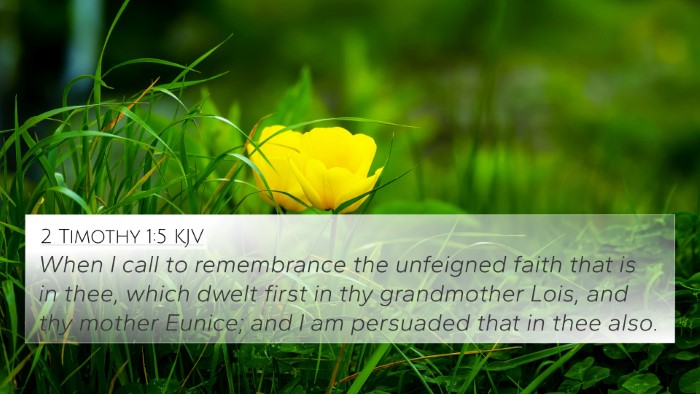Understanding Philippians 2:20
Philippians 2:20 states: "For I have no man likeminded, who will naturally care for your state." This verse highlights the unique companionship and care that the Apostle Paul experienced with Timothy, who is described as genuinely concerned for the well-being of the Philippian church.
Summary of Insights
This verse articulates the notion of deep, spiritual kinship and concern within the body of Christ. Paul, having established a connection with the church at Philippi, emphasizes the rarity of finding someone who embodies true Christian care and concern. Timothy's character is praised as one who naturalizes the concern for others, marking him as an exemplary figure in the ministry.
Commentary Insights
-
Matthew Henry:
Henry elaborates on the significance of Timothy’s character, noting that he was one of Paul’s closest companions. He expresses that Timothy not only shared the same sentiments but also exemplified unselfish love through his dedicated service to the Philippians.
-
Albert Barnes:
Barnes points out the importance of "likemindedness" in ministry. He suggests that Timothy was not only a loyal companion but also a man of deep compassion who understood the spiritual needs of the people, making him ideally suited to minister to them.
-
Adam Clarke:
Clarke emphasizes the practical aspect of Timothy’s role, suggesting that Paul's pressure for someone to genuinely care reached a critical point. Clarke infers that such a person is rare and that those in roles of leadership should strive for this kind of delivery and care in ministry.
Bible Verse Cross-References
Philippians 2:20 connects with a variety of scriptures that elucidate the themes of compassion, service, and companionship in the Christian faith. Here are some relevant verses:
- 1 Corinthians 16:10-11: "Now if Timothy comes, see that he may be with you without fear; for he does the work of the Lord, as I also do." - This reinforces Timothy's character and ministry.
- 2 Timothy 1:5: "When I call to remembrance the genuine faith that is in you, which dwelt first in your grandmother Lois and your mother Eunice, and I am persuaded is in you also." - Highlights Timothy’s faith and heritage.
- Romans 12:10: "Be kindly affectionate to one another with brotherly love, in honor giving preference to one another." - Reflects the mutual love and care expected among believers.
- Philippians 1:27: "Only let your conduct be worthy of the gospel of Christ, so that whether I come and see you or am absent, I may hear of your affairs, that you stand fast in one spirit, with one mind striving together for the faith of the gospel." - Emphasizes unity and caring for others in the community.
- 1 John 3:17: "But whoever has this world's goods, and sees his brother in need, and shuts up his heart from him, how does the love of God abide in him?" - Calls believers to practical outworking of love.
- Galatians 6:2: "Bear one another's burdens, and so fulfill the law of Christ." - Discusses the active role of caring for one another.
- Acts 16:1-3: "Then he came to Derbe and Lystra. And behold, a certain disciple was there, named Timothy, the son of a certain Jewish woman who believed, but his father was Greek." - Timothy’s early connection to the faith is established.
Thematic Bible Verse Connections
Understanding Philippians 2:20 in relation to other scriptures involves recognizing common themes. Here are some thematic connections:
- **Christian Fellowship** - The notion of like-mindedness and care is vital across multiple epistles.
- **Servanthood** - Timothy's role illustrates the call to serve others, evidenced in Matthew 20:26-28.
- **Faithfulness in Ministry** - Connects with 2 Timothy 2:2, where suitable men are encouraged to share and teach.
Conclusion
Philippians 2:20 serves as a reminder of the qualities we should seek in Christian fellowship and service. Timothy's example calls believers to foster a spirit of care and concern for one another, reflecting the love of Christ in their relationships and ministries. This verse not only guides individual actions but also encourages the formation of a supportive church community.















